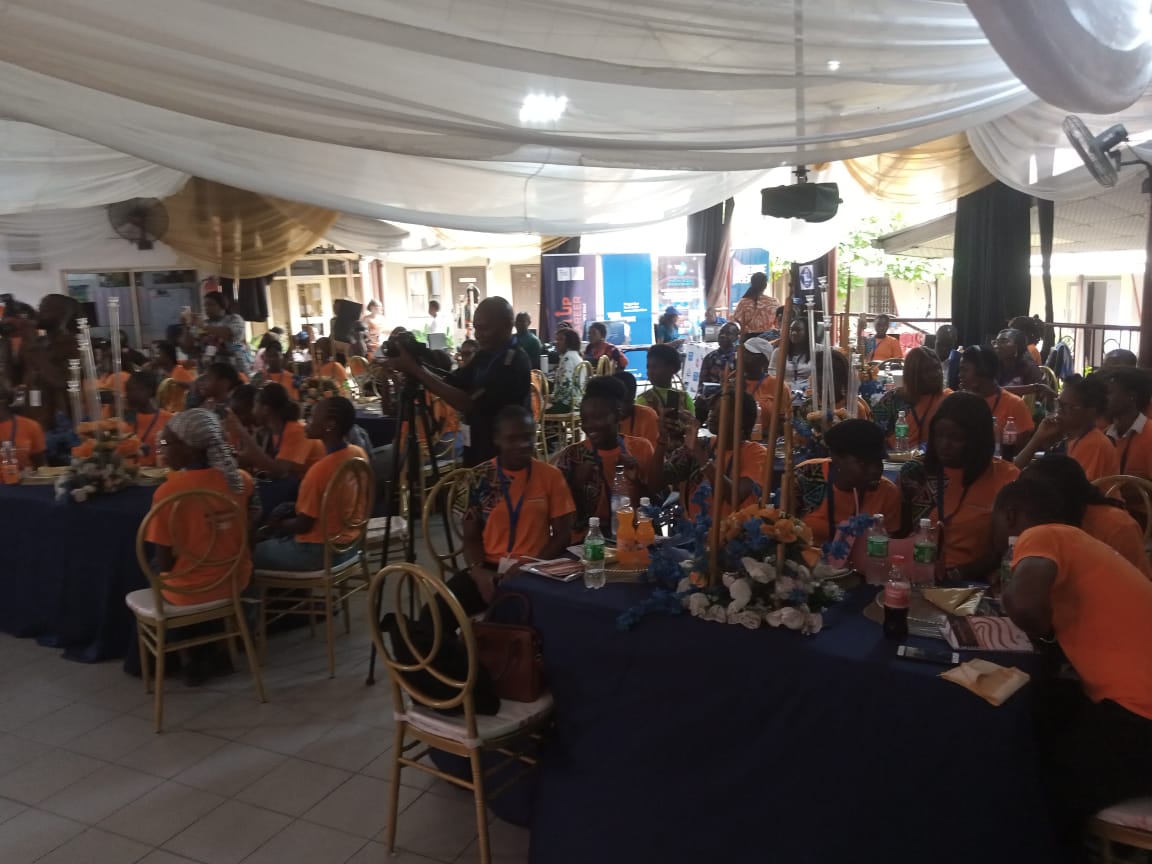Entertainment
The Evolution Of New Nollywood
Today, the Nigerian film industry or Nollywood as it is more commonly referred to, is recognised as one of the biggest in the world. There are star actors, higher production values and the intensely enthusiastic participation of global audiences in the burgeoning film scene in the country. However, these advancements did not occur until recently, when it went from its direct-to-video hits in the Golden Era to its current state – the new wave, more controversially called “New Nollywood.”
New Nollywood saw films particularly distinguished by their enhanced narrative complexity, aesthetic value, and overall production quality compared to the films made during the video boom. While some films in this wave are still released directly on DVD, most are released theatrically to teeming fans via cinemas or streaming platforms.
What happened before New Nollywood?
Long before the Ini Dima-Okojies and Timini Egbusons of today, cinema, for most people, was in the form of playing companies and travelling troupes. They performed in various cities and attracted a huge crowd of faithful looking to unwind and have a good time. These plays, either funded by the court, church or audiences, were promoted via advertisements and posters disseminating information to potential audiences.
The introduction of technology made it possible for these plays to be recorded and screened in tiny picture houses across cinemas in the industry. As a result, the local content, especially productions from Western Nigeria, owing to former theatre practitioners such as Hubert Ogunde and Moses Olaiya, were on the big screen. This way, they reached a larger audience, and this saw a significant increase in the 70s.
By the 80s, the purchasing power of most Nigerians had increased (all thanks to the oil boom of the late 70s). This single action saw an increase in cinema visits as more people could spend more going to the cinemas. It also saw home television sets become a staple in Nigerian homes. The latter would then birth family television shows, and sitcoms created for families and revolved around the quintessential Nigerian home. These shows like New Masquerade, Basi & Company, to mention but a few, were riveting and aired at times when every family member was home from the daily hustle and bustle.
These television productions were later released on video, leading to the development of a small scale informal video trade, and subsequently the much talked about video boom of the 1990s. Despite all the success, this era of Nollywood was not easy as it was plagued with multiple errors. Like the oil boom was integral to purchasing power, its crash affected the industry as well. There were also issues revolving around lack of finance and marketing support, lack of standard film studios and production equipment and, very importantly, a lack of experience on the part of practitioners.
Also, owning television sets at home came with its problem – more and more households rejected the idea of visiting cinemas. It also didn’t help that the films produced during this era were screened over a single weekend, making them available on video immediately. Eventually, more families consumed films together as it had become inbuilt behaviour. These films were educational and taught the difference between good and evil, and already there was a culture of communal watching which made it all the better.
By the 90s, most cinema houses had collapsed due to a lack of activity. Churches acquired others that had not collapsed. As expected, video on demand was the thing, and films like Kenneth Nnabue’s Living in Bondage had paved the way for this. Video rental clubs thrived for families, and the allure was paying as little as N100 for a limited amount to a film.
Resting on the Shoulders of New Nollywood
New Nollywood may not have kicked in until recently, but its groundwork has been a long time in the works. Few years into the 2000s, there was a vibrant rebirth of cinemas designed for society’s middle and upper echelon. By this time, televisions were still trendy, and films went from VHS (Video Home System) to VCD (Video Compact Discs). Nonetheless, more people craved some form of social interaction. The cinemas afforded them some level of social activity and a modified sort of entertainment beyond film watching, seeing as they were located in prominent and busy malls. The Silverbird Group was one of the first significant players here, opening up a high scale mall in Victoria Island, which had a cinema and other entertainment attractions. Upon Silverbird’s success, more and more cinemas erupted and spread into the less affluent neighbourhoods in the society.
Also, during this period, grants were provided by the government and various institutions to filmmakers to produce high-quality titles and aid proper distribution as piracy was eating deeply into the industry at that point. Some of these grants allowed filmmakers to take film courses and learn at prestigious schools. Other filmmakers tried to make breakaway films, which were quite different from the norm. These include Tunde Kelani’s Thunderbolt, Tade Ogidan’s Dangerous Twins and Mildred Okwo’s 30 Days.
By the end of 2013, the film industry reportedly hit a record-breaking revenue of N1.72 trillion. One year later, the industry was worth N853.9 billion, making it the third most valuable film industry in the world, behind the United States and India.
With New Nollywood, Nigerian films have been elevated from what they used to be in the video boom area. They have considerably bigger budgets, extended film production periods and are better equipped to take the storytelling up a notch. Also, a little freedom with the range of stories to tell was introduced. One could argue that New Nollywood may not have gotten storytelling better than its predecessors, but there seems to be time to correct that mistake if the industry seems willing to.
Another exciting thing that came with New Nollywood was video-on-demand platforms and pay-TV networks, another interesting way technology has helped the industry. Although cinemas are great for social activity, there’s an audience that either misses out on films due to their short stay in cinemas or just plain unwillingness to watch them. In 2020, Netflix launched locally in Nigeria and South Africa to prioritise content made by Africans. Since then, it’s commissioned a few original TV shows and films, most recently Kemi Adetiba’s seven-part series King of Boys: The Return of the King. Before its launch, the streaming giant had also been paying for content by Africans for streaming on its platform.
Entertainment
World Music Day: Alliance Française Port Harcourt Showcases Talents

The Garden City of Rivers State Port Harcourt at the weekend joined other parts of the world to celebrate the World Music Day, 2025, as Alliance Française showcases talents.
The event which is internationally known as Fête de la musique was held at cultural hall of the Alliance Française was a remarkable concert with memorable experience.
The event brought together music lovers, students, Artistes and members of the community For an exciting evening live performances and cultural exchange.
The Tide Entertainment reports that the world Music Day, which was created 1982 in France by the then Minister of culture, Jack Lang, ‘ Fête de la Musique’ is now celebrated in more than 100 countries every 21st June, marking the first day of summer with free concerts and musical showcases in public spaces.
In Port Harcourt, the Alliance Française honoured the tradition by spotlighting four(4) emerging artistes offering a platform to young talents shaping the city’s contemporary scene.
The audience enjoyed an unforgettable moments as they were entertained by the powerful performances from Preach A, who is known for blending fitness culture with spoken words and rhythm.
Also, artiste Emmayany delivering a vibrant fusion of afrobeat and afro pop. A singer, song writer and a performing artiste with a distinct sound.
Others were Amarachy Uko, a sensational singer with passion for soul , R&B, pop music and afrobeat.
While DJ Prospel closed the night with an energetic DJ set that got the entire hall dancing.
Earlier, the Director, Alliance Française, Port Harcourt Mrs Marina Lacal high lighted the mission of the Alliance Française saying that the event was more than a concert.
According to her, the event was put together by the Alliance Française to promote cultural diversity and foster artistic expression by connecting a long standing French tradition with creativity of the local music scene, adding that the event offerers an avenue for dialogue between culture and generations.
She stated that the event is used to promote professional and bring amateur artistes to limelight via the platform of the Alliance Française which is aimed at promoting the French Language through cultural heritage.
She explained that the celebration is also a broader series of Fête de la musique activities organized by the 10 Alliance Française across Nigeria in sync with concerts held in France and around the world simultaneously.
She further noted that the occasion reaffirms the role of Alliance Française as a cultural bridge, one where French heritage meets the pulses of Nigerian youth.
It would be recalled that no fewer than 19 artistes applied to perform at the event in Port Harcourt, but only four got approval for appearance.
Entertainment
PMAN Set To Implement Performance Levy ‘Tomorrow

The Governor of the Performing Musicians Employer’s Association of Nigeria (PMAN), Rivers State chapter, Comrade Moses Mabadeje popularly known as Mozy B said that the body has announced plans to implement performance Levy on artistes in the state with effect from 21st June.
This was carried in a statement released to The Tide Entertainment, yesterday by the Deputy Governor of the association, Comrade Abiye Howells.
According to the Governor, the announcement was made by PMAN, the only governing body that regulates the music profession in Nigeria, as authorized by the Government of Nigeria, in line with the Trade Union Act.
He stated that those affected by the Levy include (Non members)bands, groups, Hotels, Bars, lounges, Event Centres, show organizers, promoters and other stakeholders hosting events which feature live music performances within the State.
However, the Levy does not apply to members of the Performing Musicians Employer’s Association of Nigeria. (PMAN).
Comrade Moses Mabadeje, explained that this drive is aimed at financing the association and supporting the welfare and interest of musicians as outlined in Article 8 of the PMAN constitution as amended (2023). Consequently, a PMAN task force has been set up to enforce and swing into action to effect this move.
He further said that event organizers, promoters and owners of event centers are expected to comply with this regulation as the Governor has urged stakeholders to collaborate with the association to ensure the successful implementation of the levy and the peaceful co-existence between PMAN and Stockholders.
Nancy Briggs
Entertainment
“French Up Your Career” PH, 2025 :Consul General Of France Harps On Proficiency In French

The Consul, General of France in Nigeria, Laurent Favier has encouraged French Learners to improve their skills on the language, as there are lots of opportunities up for grabs on the job market with fluency in French Language, saying that there are many other career paths which are often less well known to learners of French.
 Participants at the “French Up Your Career” event held in Port Harcourt.
Participants at the “French Up Your Career” event held in Port Harcourt.
Favier who disclosed this during the just concluded third edition of the seminar tagged “French Up Your Career” organized by Alliance
Française, Port Harcourt explained that learning French doesn’t mean adding a language to your resume. It rather provides learners with new opportunities. Irrespective of their area of interest, be it diplomatic and International relations, international development, translation and Interpretation or journalism.
According to the Consul General, it was important to create awareness for young Nigerians in Port Harcourt who desire to have better understanding of how been fluent in French can create diverse career opportunities for users of the languages in Nigeria and the world at large, emphasizing that proficiency in French could possibly make learner a bridge between Nigeria and fast-developing regions.
“You previously heard this morning about how you can improve your French skills. This afternoon you will discover how being fluent in French can provide a significant edge on the job market and lead to professional careers that you may not have even considered before,”
“This event comes at the right time, as it launches the celebration of the richness and diversity of French-speaking cultures, which will mobilize us for more than a month throughout Nigeria and alongside other French-speaking countries,” Favier added.
He further highlighted that French is spoken by over 300 million people across the world, saying that, it’s one of the official languages of the United Nations, the European Union, and the African Union.
“There are many neighbouring African countries to Nigeria ,who have French as one of their primary languages of communication including Cameroon, Chad, and the Democratic Republic of the Congo. So, what does this mean for you as students here in Nigeria?” He asked
“These sectors in which the French Embassy is often mobilized are the business and marketing field for example, as French is often the preferred language in many multinational companies, particularly those in the energy, oil and telecommunications sectors. I’m thinking as well in technology and IT,” he said
He noted that French-speaking countries in Africa are investing heavily in tech, innovation, and infrastructure, revealing that companies in Tech are looking for bilingual professionals to assist with software localization, customer support, and managing projects in French-speaking regions.
“The French embassy is not only mobilized to help learners discover promising sectors. We are also providing our support and expertise in
training teachers and optimizing university programs,” he summed up
Also, the linguistics cooperation attaché, French Embassy in Nigeria, Magaly Losange, who also gave a lecture at the seminar, in an interview with Newsmen said that the main purpose of the seminar was to be more informative and supportive to those who want to make a skill out of French Language,saying that as the linguistics cooperation attaché of the French Embassy it is her duty to promote French language through culture.
She cited traditional stereotypes as a major challenge affecting the growth and development of French in Nigeria, as school, teachers at the primary and secondary level in most cases teach French using the traditional way, where students learn French, but could not put words and grammar together as a skill for communicate.
“French is important. I don’t see French as colonization, l see French as a key to embrace globalization, l hope that learners will be inspired and ready to embrace the global village,” Losange said.
She however said that the French Embassy is working to ensure that equipments to facilitate the learning of French is put in place to enable learners improve their skills fast, which in two to three years learners should be able to communicate with French, advising learners to be intentional with learning the language, through social media and other workable devices to advance their skills for certification and better opportunities.
Highlight of the event which had about 250 participants in attendance was the eloquence award ceremony where students were awarded for their eloquence in French language by the Director, Alliance Française Port Harcourt, Mrs.Marina Lacal alongside the Linguistics cooperation attaché of the French Embassy in Nigeria, Magaly Losange.
After two edition of the seminar it was the turn of the Alliance Française, Port Harcourt to host the Third edition.
It would be recalled that the first edition of ” “French Up Your Career” event was organized at the Alliance Française Lagos on October 23, the second one at UNILAG on November 24, 2024 respectfully.
-
Sports1 day ago
Eagles B Players Admit Pressure For CHAN Qualification
-

 Niger Delta24 hours ago
Niger Delta24 hours agoNDLEA Intercepts 584.171kg Hard Drugs In Bayelsa … Arrests 559 Suspects
-
Rivers1 day ago
Four Internet Fraudstars Get Different Jail Terms In PH
-
Business23 hours ago
Food Security: NDDC Pays Counterpart Fund For LIFE-ND Project
-
Business24 hours ago
PH Women Plan Alternative Stew, Shun Tomato High Prices
-
Foods/Drinks1 day ago
What To Know About Your Menu
-

 Niger Delta24 hours ago
Niger Delta24 hours agoEx-IYC President Lampoons Atiku’s Presidential Ambition … Declares It Negative Impact On N’Delta
-
News1 day ago
Tinubu Never Stopped 5-year Visa For U S. Citizens – Presidency ?

